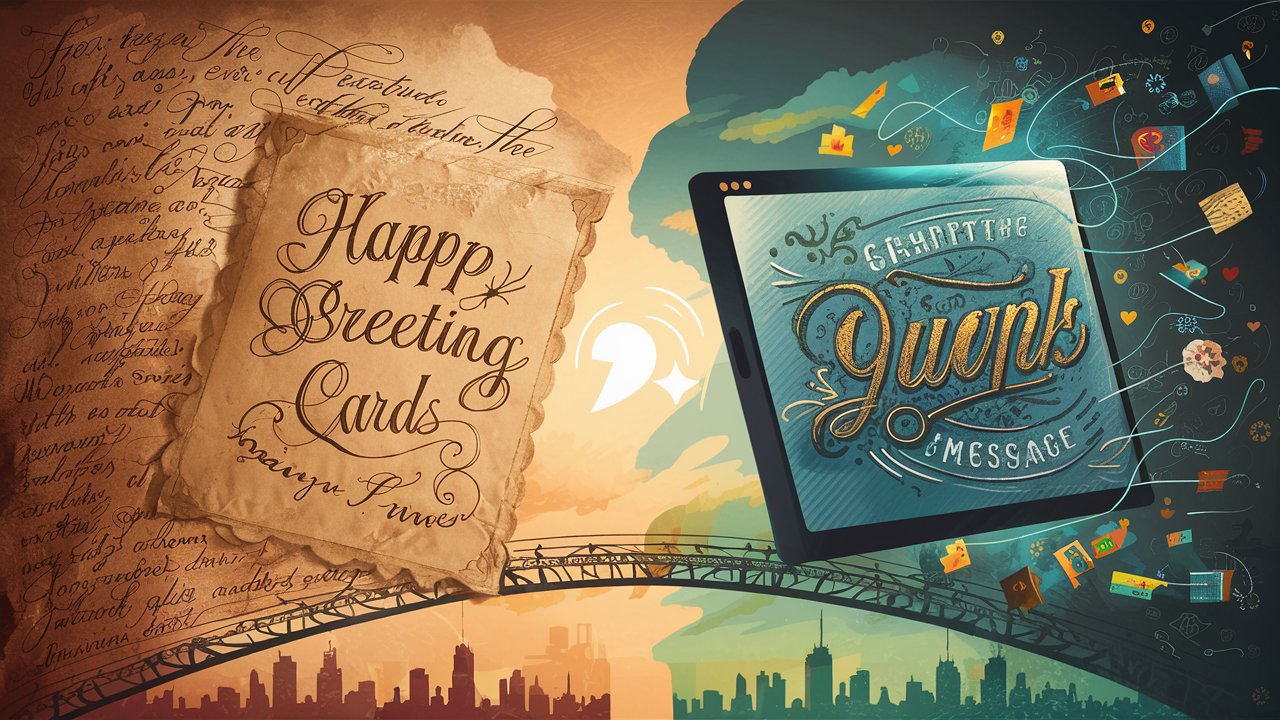The custom of sending greetings has ancient origins; greeting cards are believed to exist for at least several centuries and the first ones were found in ancient Egypt. However, owning to the advance in technology, have greatly influenced the process of conveying our wishes of well being. This article focuses on the history of the greeting cards electronics industry and the impact of technology on this growth and development of this product.
The Enduring Allure of Paper Cards
Holding a physical greeting card cannot be compared to any other form of a greeting since it is unique in so many ways. The action of selecting a card, selecting the right message to write and then manually writing a note already speaks of a certain genuineness which people fail to portray today with the developments of technology. It is perhaps with rigorous ethnic decorum The restriction of conventional greeting cards provides the buyer an aesthetic appeal with the touch and feel of paper, the colors of the illustrations and the sheer pleasure that comes with holding the card in hand.
Nevertheless, it is vital to comprehend that the usage of the paper greeting cards still remains strong in particular niches. Luxury custom business greeting cards which are specially and uniquely cut with enhancements such as raised surfaces or sound capabilities have a market. Moreover, current research reveals that there are consumers who are still firm patrons of actual cards particularly the young generation or the millennials who still attach importance to the emotional value that can be attributed to the use of cards [2].
The Rise of eCards: Convenience and Customization
Greeting cards were equally affected by this revolution as the world shifted its focus towards the internet and online communication. Electronic cards, or e-greeting cards which refer to the sending of greeting cards through internet or e-mails possess certain benefits such as ease of use and the fact that they were/are not printed on paper. Here’s how technology fueled the rise of eCards:Here’s how technology fueled the rise of eCards:
- Accessibility: Ecards can be exchanged in a matter of minutes and this can happen with no restrictions of location. This aspect is especially beneficial in modern society given the competitive nature of the business world.
- Customization: Other than that, eCards can be crafted with personalized content and could easily be sent to the recipient. With a myriad of options as to the choice of designs, option to add photos and videos, as well as option to record personal, targeted messages.
- Cost-Effectiveness: Recipients also do not have to bear the costs in buying a card and affording the postage this has made sending eCards cheaper or even free in most cases.
- Environmental Impact: They save the cost of coming up with the cards, getting the papers and transporting the cards if they are printed and also the environmental degradation that is occasioned by the disposal of the cards usually made from papers.
Labor Day eCards: A Modern Way to Celebrate
Thus, Labor Day – a Federal holiday celebrated in the United States of America dedicated to the American workers and their accomplishments – is, indeed, a festive event accompanied, as a rule, by the company of friends and relatives. Nevertheless, owing to the rush in today’s world, Labor Day eCards are a better way to share wishes with people in one’s working sphere, friends, and relatives. Here are some ways Labor Day eCards can be used:Here are some ways Labor Day eCards can be used:
- Expressing Gratitude: It presented the effort of creating eCards to show employees that appreciation for the hard work and commitment shown in their workplace. It is possible to locate Labor Day Cards with a written greeting in advance or create them with a caring message from the management.
- Sharing Historical Context: Most of the Labour Day’s eCards come with historical themes or even informative messages concerning the occasion. Such eCards can lead to discussions, and help in preserving knowledge about the workers’ rights and their proper treatment.
- Adding a Personal Touch: These eCards can be personalized adding photos or inside jokes according to the group or the person it will be sent. With this, the eCard takes on a feeling of friendlier environment as the eCards are personalized.
Growth and Transformation: The Future of Greeting Cards
This is factual that the invention of technology has changed the design of greeting cards. Thus, eCards have apparent advantages but paper cards are still popular. Therefore, one can assume that the prospects for printed greeting cards will involve their continued sharing of the market with their electronic counterparts, serving different segments and uses.
Here’s a glimpse into what the future might hold:
- Tech-Enhanced Paper Cards: It is only going to get worse, meaning that you are likely to witness even combinations of technology with physical cards. Consider thinking about sophisticated playing cards with some level of extended reality or cards with mini-QR codes for delivering the various messages or short videos with greetings.
- Sustainable Practices: The-green-element-in-traditional-cards-will-be-eliminated-and-replaced-with-recycled-content-and-eco-friendly-inks-and-varnish-and-unnecessary-packaging-when-ever-possible.
- Hybrid Solutions: Novel forms might develop that would enable people to blend elements of the computer and paper-based greeting cards. Think of synthesizing an e-card that the intended recipient will hand write or computer type and forward through the mail or electronically.
Conclusion
The evolution of greeting cards from paper to digital reveals how technology could change tradition while offering possible ways to communicate. Regardless of whether one selects a beautifully written paper card or an easily transmitted electronic card, the spirit of the cards is the same – the need to let those special to us know that they are on your mind and in your prayers.


SK Masum